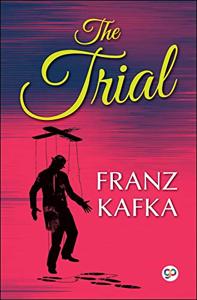
Want to learn the ideas in The Trial better than ever? Read the world’s #1 book summary of The Trial by Franz Kafka here.
Read a brief 1-Page Summary or watch video summaries curated by our expert team. Note: this book guide is not affiliated with or endorsed by the publisher or author, and we always encourage you to purchase and read the full book.
Video Summaries of The Trial
We’ve scoured the Internet for the very best videos on The Trial, from high-quality videos summaries to interviews or commentary by Franz Kafka.
1-Page Summary of The Trial
Overview
On his thirtieth birthday, Josef K. was arrested for a crime that he did not commit. Two guards named Willem and Franz were sent to the lodging house where he lived to arrest him, but they could not give any information about why he had been arrested. He met with two higher-ranking officials in his apartment who told him that it would be best if he went on living as usual until further notice.
After work, K. returns home and speaks to Frau Grubach about his day at the bank. She consoles him, but then upsets him by questioning Fräulein Bürstner’s sexual morals. He stays up late into the night waiting for her return and apologizes when she comes back. He ends up kissing her forcefully, which she accepts with exhaustion and indifference
On the following Sunday, K. attends his first court hearing. He goes to a tenement building that looks like it’s falling apart and discovers that he wasn’t given an exact address for the courtroom. He finds it by knocking on random doors until someone tells him where to go. When he arrives at the courtroom, everyone is already seated and waiting for him; they reprimand him for being late and begin without giving him time to settle in or speak with his lawyer (who isn’t even there). The magistrate addresses K.’s character by using a different name than what he gave when entering the room; this angers K., who tries to embarrass both himself and the magistrate in order to get people watching interested in what’s going on—but no one reacts except those sitting directly around them. During an interruption, K. walks through the crowd of people watching but realizes that they aren’t actually members of public: They all wear matching badges indicating their positions as part of the court system. This makes K angry because he believes that everyone was just pretending not to be bored while he tried making a scene earlier.
K. returns to the court, but there is no hearing scheduled for him on that day. He meets a washerwoman who works at the court and attempts to seduce K., offering to help with his case if he will take her away from the horrible court where both the magistrate and a legal student have been making advances on her. The student arrives and takes the woman away from K., while K.’s faintness in their presence leads him outside of this area of the court offices.
While working for the bank, K. opens a storage room to find Willem and Franz being thrashed by a man in black leather. The guards say that K.’s complaints about them before the court have led to this punishment because of what he said. He didn’t know his words would lead to these consequences for them, but offers a bribe anyway, which is refused.
K. has been accused of a crime, and his uncle comes to visit him from the country to help with the case. They go see Huld, who is sick in bed. A clerk is also there because he heard about K.’s trial and wanted to get involved in it too. However, Huld tells them that they can’t be involved because they aren’t lawyers. He then sends K.’s uncle away so he can talk with K., but Leni (Huld’s nurse) distracts K.. She seduces him by smashing a plate outside the room, and she takes him into her room for sex. The two have sex on top of some papers that are important documents for K.’s case! When his uncle comes back after being kicked out earlier by Huld, he scolds K., saying that what he did was disrespectful and hurtful towards both men’s reputations.
K. sits at his desk and thinks about the fact that he has been to see Huld, but Huld is not telling him anything useful. He decides to fire Huld and take charge of the case himself by writing a detailed summary of his life. K.’s thoughts are interrupted when one of his clients visits him and tells him to meet with an artist who could be helpful in the case.






